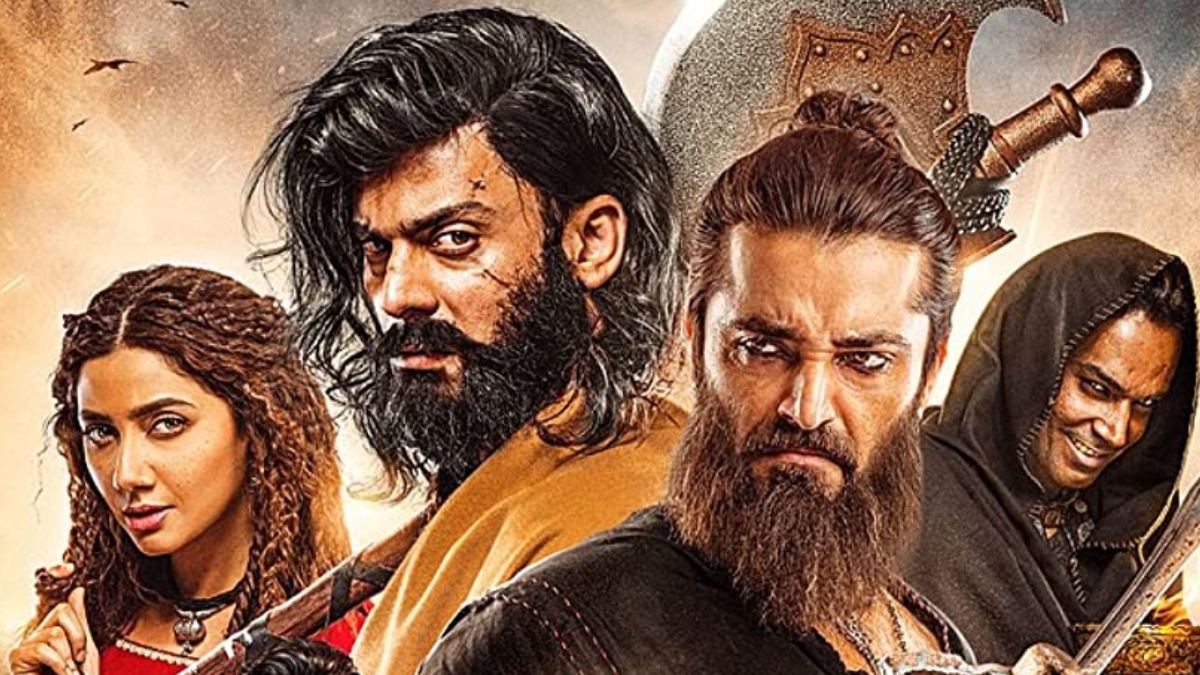
This movie was about a simple battle between right and wrong. Noori Natt in the film belonged to the tribe of Natt’s, who held a “Dera”(center) within the village, residing in an old havelli(an estate). From this estate they conducted their hooliganism, whereby Noori Natt was known to be the strongest amongst all in the village. Whereas Maula Jatt, belonged to a nearby village, a chief of his people, and a fighter for justice.
Maula Jatt’s mother sees wrong being done to a girl in the village, who is chased down by Makkah Natt. She herself stands in the way of the enemy and shouts on the top of her voice for her son Maula. Maula reaches in the nick of time to even the odds. As soon as he punishes Makkah, he passes an order, as a Chief would do in a panchayyat(court of a village), that Makkah Natts sister (Daro) will now have to wed the village peasant. This was the symbol of Maula Jatt – Haq (Right).
Daro kills her brother for bringing shame to the Natts, shooting him in his chest. Honour.
Noori exits jail, and seeks a worthy competitor. In his search he finds that his brother was harmed and the Natts dishonoured. Thus begins the battle between Jatt and Natt. The movie expands into the various fights, hospital scenes, and much more intrigue into the characters and their fight for valour, rights and honour. It so much so, that a very significant culture is shown between Natt and Jatt, whereby Daro has a favor she owes Jatt, thus requests her brother to give 1-cow to each peasant of Jatts village to even the odds. THIS was the culture of Punjab.
A fight would be fair, a fight would go further if need be. The ending of Maula Jatts original, where Noori Natt slices his own leg, for when he broke a peasants leg in Jatts village, to say that he will never owe Jatt anything in the hereafter. The beauty of it all, Noori accepting the power of Maula Jatt, saying his iconic line “now the Natts will only be proud if a Maula Jatt is born within their generations”.
These are ideals to live by. Honour, right, acceptance, bravery, fighting, evening the odds. Much and much more that the original film had mentioned, and taught. The original film was the voice of the people. The original was the recognition of Punjab. The way all the villagers would gather during a festival. The way the villagers backed their Chiefs. How different category of people dealt with one another. And the most important of it all, that the liberals will never understand, the true power of women.
The new rendition made the men cry, maybe for their urge to fulfill the “toxic masculinity” trend (A sham in itself). The women were shown worse than what the original had shown.
The Mother of Maula Jatt gave the order for her son to fight for what is right. Daro went to Jatts village to fight on behalf of her family honor. Maula’s mother wasn’t shy of anyone, and would be the first line of defence against evil. Daro, backed Noori Natt as a beloved sister, and ordered him to regain the order of the Natts. Daro herself led the Natts into battle multiple times, but frail in comparison to the warriors opposite, she would fail and land in jail. Daro would carry her side-by-side rifle and face her enemies on her own, she believed in the valor of her bloodline to the extent that she was fearless. There was dances of obscene nature, a crowd grabbing technique by the then producers, but it was done in the “mujrah” culture. No woman was naked, no skin was shown, for even our kanjars(charlatans) had some decency.



